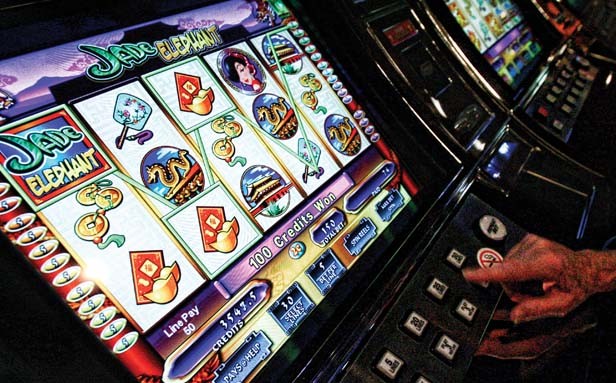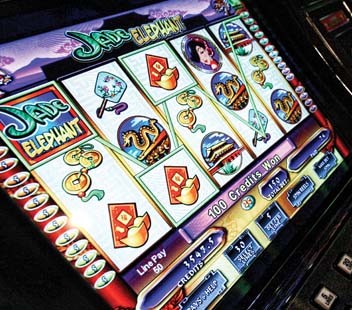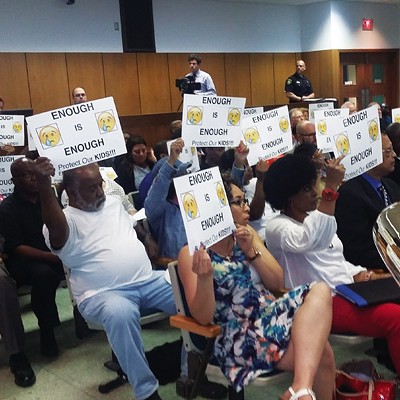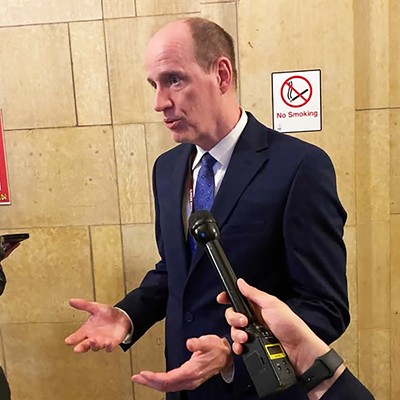
Springfield bars, restaurants and fraternal organizations will soon be able to offer video gambling legally, thanks to a 7-2 vote by the Springfield City Council on Tuesday.
The nine aldermen seemed weary heading into debate on the video gambling proposal, following an hour-and-forty-minute hearing on a proposed tanning ban for minors that ended up being held in committee. Ward 7 Alderman Joe McMenamin, who voted against the video gambling proposal, said after the four-hour meeting that he was “exhausted,” but that he would consider options to limit gambling or put the issue to a voter referendum.
Springfield mayor Michael Houston proposed the video gambling plan at the council’s July 3 meeting. The newly-passed ordinance calls for licensing establishments that want to operate as many as five video gambling machines, collecting $500 annually from each licensed establishment and $250 annually for each machine operated.
Legalized by the Illinois General Assembly in 2009, the state-controlled, video gambling program is meant to legitimize so-called “gray market” gambling that often took place on legal machines with illegal payouts. The program is due to officially begin statewide on Aug. 1.
William McCarty, Springfield’s budget director, previously told Illinois Times that the city’s video gaming revenue would likely be used to help pay for infrastructure improvements, possibly through the issuance of municipal bonds. McCarty previously said the city can’t project yet how many machines will be operated or how much money the plan could raise. Similar questions asked by aldermen at Tuesday’s council meeting elicited the same response.
Under state law, the city will receive five percent of video gambling revenues collected by the state. That’s on top of the fees Springfield will charge establishments for video gambling privileges.
Mark Cullen, the city’s corporation counsel, said about 30 percent of each video gambling machine’s gross income would go toward state taxes and local fees. Craig Cohoon, treasurer of the Illinois Coin Machine Operators Association, said each machine would net an estimated $100 per day after taxes and fees, but he said that number is “conservative,” and some cities in other states see machines netting between $130 and $150 per day.
The council amended the original proposal on Tuesday to limit the number of video gambling licenses to equal the number of liquor licenses. Only establishments with liquor licenses will be eligible to obtain a video gambling license.
The original proposal called for the mayor’s office to have sole power of approval for video gambling licenses, but the council amended the proposal to include an appeal mechanism for establishments whose applications the mayor rejects. Appeals would go to the city council for a possible overriding vote.
McMenamin expressed concern that the city’s ordinance is too broad, effectively “pre-approving” any future expansions of gambling passed by the state legislature. In the council’s July 10 “committee of the whole” meeting, the council rejected McMenamin’s amendment to limit the proposal only to the 2009 video gambling law.
Ward 1 Alderman Frank Edwards expressed concern that the city’s fee structure would keep establishments from operating video gambling machines. He pointed to the City of Peoria, which has no such fees, and the Village of Chatham, which has a $25 fee.
Cullen said the fees are based on “the value of the additional work the city is going to have to do in terms of having to regulate the video gaming terminals.”
While much of the debate on the video gambling ordinance centered on revenue projections and policy questions, some members of the public spoke against the proposal on moral grounds.
Anita Bedell, executive director of Illinois Church Action on Alcohol and Addiction Problems, testified at the meeting that the video gambling ordinance would have a negative impact on businesses and families.
“When people lose their money (to gambling), they do not have money to buy other things,” Bedell told the council. “If the money is lost on the machines, they will not be able to use the money to support other businesses.”
David Herren of Springfield reminded the council of a non-binding resolution passed overwhelmingly in 1994 by Sangamon County voters that called for a referendum on any gambling expansions in the county.
“The State of Illinois hasn’t fully cleared the path to video gambling yet, so there’s time to carefully consider the question of this city council’s responsibility to that large majority of voting public who made their position very clear…,” Herren said. “I pray you will fully consider this appeal for fairness and respect for the express will of the people.”
Ward 7 Alderman Joe McMenamin and Ward 2 Alderman Gail Simpson voted against the ordinance, while Ward 5 Alderman Sam Cahnman voted present.
Contact Patrick Yeagle at [email protected].



















